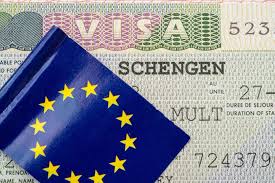The world of international travel is filled with complexities, and understanding visa requirements can be a daunting task. If you’re an Israeli traveler planning a trip to Europe, you might be wondering about the geography of Israel, its visa obligations, and the distinctions between the European Travel Information and Authorisation System (ETIAS) and the Schengen Visa. Join us on a comprehensive exploration of these topics to help you plan your European adventure with confidence.
The Geography of Israel
To answer the first question—Is Israel in Europe?—let’s clarify Israel’s geographical location. Israel is not in Europe; it is a Middle Eastern country situated in Western Asia. However, Israel’s proximity to Europe and its historical, political, and economic ties to European nations make it a significant partner in various fields.
Visa Requirements for Israeli Travelers to Europe
Now, let’s delve into the heart of the matter: the visa requirements for Israeli citizens traveling to Europe. The answer hinges on several factors, including the purpose and duration of your visit, as well as the specific European countries you plan to explore.
Short-Term Visits: Schengen Visa
If your trip involves short-term stays—typically up to 90 days—for purposes such as tourism, business meetings, or family visits, you may need a Schengen Visa. The Schengen Area comprises 27 European countries that have abolished internal borders, allowing travelers to move freely within the region. Some key points about the Schengen Visa:
- Coverage: The Schengen Visa grants access to all Schengen Area countries, making it a versatile option for multi-country European itineraries.
- Application: To obtain a Schengen Visa, you must apply at the consulate or embassy of the Schengen country that serves as your main destination or the first port of entry.
Visa-Exempt Travelers: ETIAS
For Israeli citizens who are exempt from Schengen Visa requirements, there’s the European Travel Information and Authorisation System (ETIAS). ETIAS serves as a pre-authorization for visa-exempt travelers visiting Schengen Area countries. Key aspects of ETIAS include:
- Online Authorization: ETIAS is a digital authorization system designed to enhance security and simplify entry for travelers.
- Purpose: It covers short-term visits for tourism, business, medical purposes, and transit.
- Validity: An approved ETIAS is typically valid for three years or until your passport expires, whichever comes first.
When to Use ETIAS vs. Schengen Visa
Now, the crucial decision: ETIAS or Schengen Visa?
- Visa-Exempt Travel: If you are visa-exempt and planning a short visit to one or more Schengen Area countries, ETIAS is your go-to option. It streamlines entry without the need for a Schengen Visa.
- Longer Stays: For stays exceeding 90 days, such as study, work, or long-term visits, you’ll require a long-stay national visa (D Visa) issued by the specific Schengen country you’ll be residing in.
Navigating the ETIAS vs. Schengen Visa Dilemma
The decision between ETIAS and a Schengen Visa depends on your unique travel circumstances. Here are some key considerations:
- Length of Stay: For short stays under 90 days, ETIAS offers convenience and cost-effectiveness. Schengen Visas are essential for longer durations.
- Multi-Country Visits: If your itinerary covers multiple Schengen countries, a Schengen Visa may be more practical.
- Future Travel Plans: ETIAS remains valid for multiple trips within its validity period, making it suitable for recurrent visits.
Final Thoughts and Planning Your European Adventure
In conclusion, Israel is not in Europe, but its travelers have access to both ETIAS and Schengen Visa options, depending on their travel plans. ETIAS simplifies short-term visits for visa-exempt travelers, while Schengen Visas are essential for longer stays or multi-country itineraries.
Before embarking on your European adventure, carefully assess your travel purpose, duration, and destinations to make an informed choice between ETIAS and the Schengen Visa. With the right authorization in hand, you can explore Europe’s rich cultural heritage, stunning landscapes, and vibrant cities with confidence and ease.
My name is Diana Moore , focus on innovation mindsets . As I believe in working hard and putting the soul in my work, I have accomplished so much success and place in SeeHeadlines.Com, and now I have confidence in this, that I am the spin of this network. I have a vision of touching the sky. I wish to see this industry on a global scale one day.

